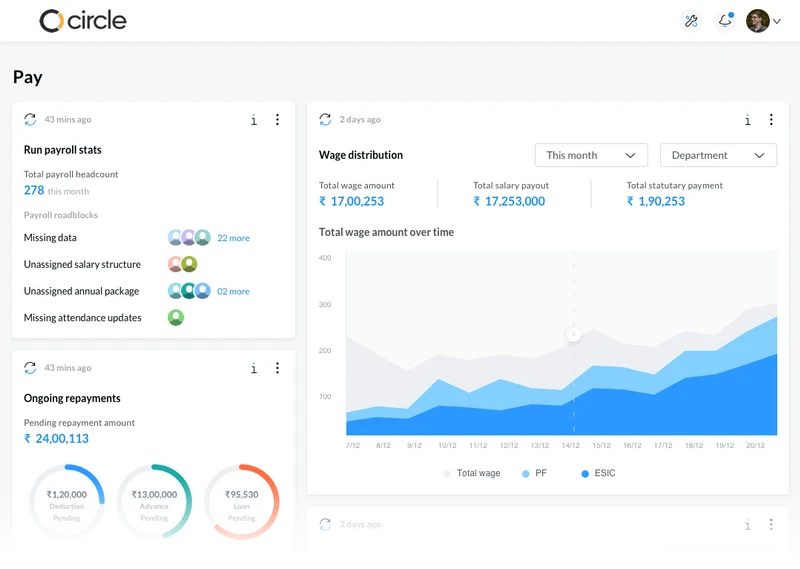When the 26/11 attack took place at the Taj hotel, every staff of the hotel worked round the clock to save the lives of their guest. Many of them died in the attack, but their families stood proud of the family of a soldier. The then chairman of Tata group, Ratan Tata visited the grieving families and provided them with monetary and emotional support – a rare sight in these times of corporate culture.
Why are we telling you this story? What has it got to do with HR and company culture?
Well, there is a lesson for all of us to learn. A lesson on building not just a company, but also a culture around it.
Tatas is one of the best examples of a company having strong HR fundamentals. There were employee handbooks, but it never spoke about sacrificing your life for the people. There was no formal training given to it. Yet, the culture of giving the best of the services to your guests was so deeply ingrained in the minds of the hotel staff that they did their duty until their last breath.
This is what we call a perfect example of an ideal company culture. It is not just about training employees to follow the values laid down by the company; it is about nurturing them to feel the values and ingrain it within themselves as a second nature.
Today, we are going to discuss how you can develop a strong company culture as an HR manager.
1. Determine the focus of your company

You need to determine what the focus of your organisation would be. Does your company want to build a customer-centric culture like Taj hotel, or is it focused on building innovative solutions like Google? Remember, if you want your employees to be aligned with your objectives, you have to inculcate the values that you think are required to achieve them.
2. Constantly communicate to drill down the idea into the minds of your employees

Your company culture is not something to be written in the employee handbook and stored in a drawer. You have to make constant efforts to communicate it to your employees so that they inculcate it in their day-to-day activities and make it a way of working. We cannot stress on the importance of how important communication is in building your company’s culture.
3. Be transparent about what’s happening within the organisation

Transparency is the key to building trust in the minds of your employees. Good or bad, let your employees know everything that is happening within the organisation from you and not through water cooler discussions.
4. Encourage work-life balance to help your employees grow holistically

An organisation can grow when the employees are happy, and your employees will be happy if they are allowed to have a balance between their work and personal life. From reducing the number of working hours to allowing employees to work from a remote location during an emergency, introduce small initiatives to help employees to focus on their work and life efficiently.
5. Trust and respect should be the two arms of your company culture
Every employee – an inexperienced intern or a CEO deserves respect. Make respect and trust the two arms of your company. Trust the employees to be faithful to your organisation. Do not stalk them on social media to see what they do. Similarly, do not allow employees especially the seniors to bully or disrespect others in the organisation. As an HR manager, your responsibility is to discourage disrespectful behaviour and help the perpetrators understand they are equal in the organisation and their power is only limited to taking business decisions.
6. Encourage upward communication in the organisation

There is a popular notion that some of the best solutions and product ideas come from the shop floor. Considering that, the people working at the grassroots level of your company have a better idea about the challenges and the shortcomings that the organisation faces, it is important to ensure that their voices are heard directly by the management. Initiatives such as coffee with leaders, town hall meetings are the best way to bridge the communication between the management and the employees. Such initiatives help the management get a better perspective about the bottlenecks in the organisation and encourage employees to become an active participant in the growth of the organisation.
7. Recognise and encourage talent

Every hardworking employee likes it when the organisation recognises his or her contribution. Make Rewards and recognition an integral part of your company culture. By rewarding the deserving employees and sharing your feedback about them, you will motivate them to continue their good performance and help the organisation achieve its goals. One important thing to note here is to ensure that the rewards are given to genuine employees.
8. Encourage teamwork

For an organisation to progress, its employees have to work with each other with strong understanding. They have to understand that while personal objectives are important, company’s objectives are also a priority. Hence, as an HR manager, you need to ensure that the teams are aligned with the company goals and are working in full cooperation with each other. Do not hesitate to pick out employees who try to break the team spirit and recognise the contribution of the team that has worked in unity consistently.
As companies grow in size, maintaining the core culture of the company becomes an issue. You may not be able to personally oversee the practices within the company. However, by giving the senior employees of the organisation the role of a mentor, you will be able to pass on the baton of good culture across the organisation, as well as give them the sense of being an important part of the organisation. And with an open communication line, respect, trust, and teamwork, you will be able to keep the core values of your company alive even as it grows leaps and bounds.








